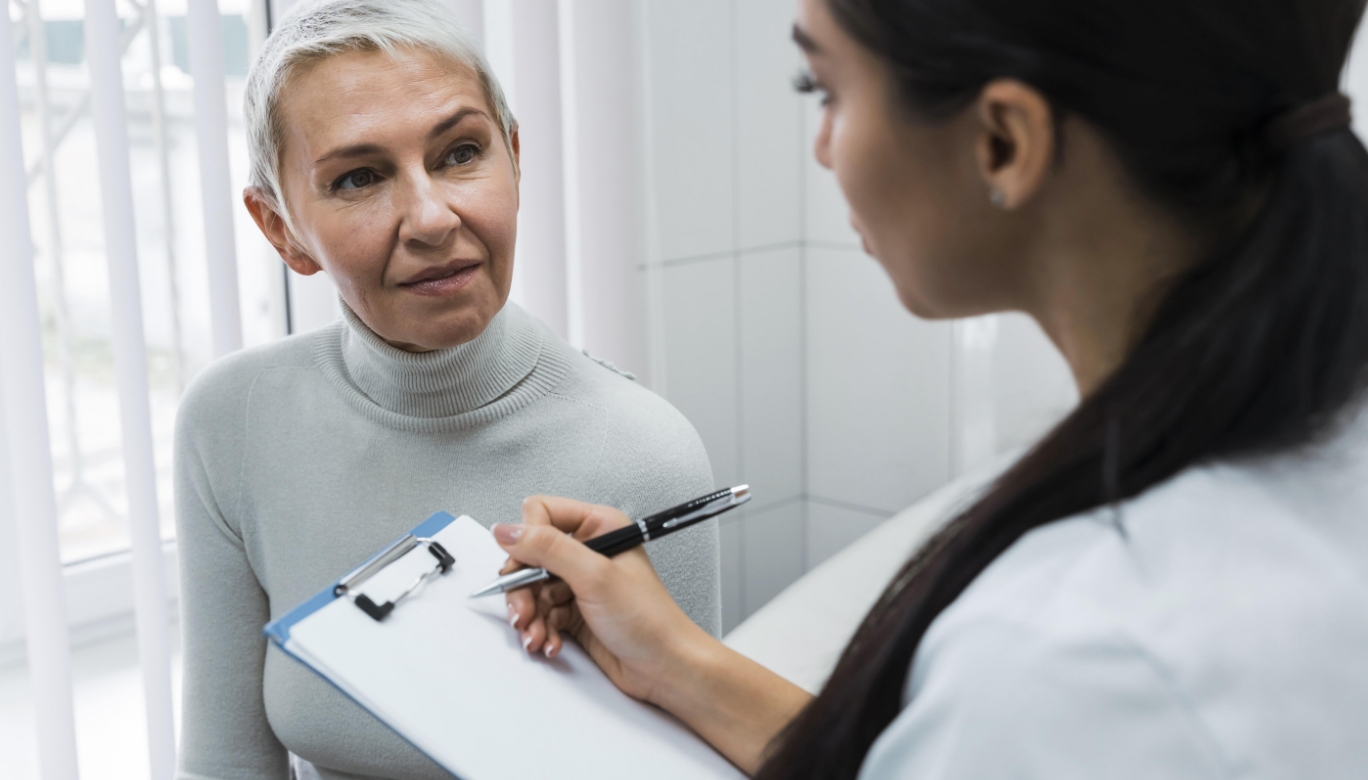Menopause: The Basics and How to Navigate This Important Life Stage

Every day, around 2 million women worldwide enter menopause. Yet, despite its prevalence, menopause remains one of the least discussed life stages. As a result, both women and men often lack critical knowledge about it, leaving many unsure about what to expect or how to support themselves or others through the process. Here, we’ll break down menopause basics and provide valuable resources to help you stay informed and empowered.
What Is Menopause?
Menopause is a natural biological process that marks the end of a woman’s reproductive years. It typically occurs between the ages of 45 and 55, although it can happen earlier or later. The transition to menopause, called perimenopause, can last several years and is characterised by fluctuating hormone levels, especially oestrogen and progesterone.
Menopause is officially diagnosed after 12 consecutive months without a menstrual period. The decline in hormone levels can lead to a variety of symptoms, some of which can be challenging to manage, but knowing what to expect and how to handle these changes is key to maintaining quality of life.
Common Symptoms
While menopause affects each woman differently, there are some common symptoms, including:
- Hot flushes: Sudden, intense feelings of warmth, often accompanied by sweating and redness, especially in the upper body
- Night sweats: Hot flushes that occur during sleep, often disrupting rest and contributing to fatigue
- Mood changes: Hormonal shifts can affect mood, leading to irritability, anxiety or even depression
- Sleep problems: Insomnia or difficulty staying asleep is common
- Weight gain and slowed metabolism: Many women notice changes in body weight and fat distribution during menopause
- Vaginal dryness and discomfort during sex: Lower oestrogen levels can lead to dryness, itching and discomfort
- Bone loss: Declining oestrogen levels can contribute to decreased bone density, increasing the risk of osteoporosis

What Can You Do?
While menopause is inevitable, there are many ways to manage symptoms and improve well-being during this time. Here are some key strategies:
- Healthy Lifestyle: Eating a balanced diet rich in calcium and vitamin D, exercising regularly, and maintaining a healthy weight can reduce the risk of osteoporosis and heart disease, which can increase after menopause
- Hormone Replacement Therapy (HRT): For some women, HRT can help alleviate symptoms like hot flushes, night sweats and vaginal dryness. However, it’s essential to discuss the risks and benefits with your healthcare provider
- Non-hormonal Therapies: Some women prefer non-hormonal treatments, such as lifestyle changes, herbal supplements or medications specifically designed to relieve menopause symptoms. Cognitive-behavioural therapy (CBT) and mindfulness can also be effective for managing mood swings and sleep issues
- Talk to a Doctor: If you’re experiencing severe symptoms or simply want guidance, speaking with a healthcare provider who specialises in menopause is essential
Resources for Menopause Support
Fortunately, there are many resources available to help both women and men better understand and navigate menopause. Here are a few you can turn to:
- Menopause Matters (menopausematters.co.uk): A comprehensive resource for understanding menopause, its symptoms and treatment options. This site offers advice, forums and a wealth of information on lifestyle changes, medical treatments and symptoms management
- The North American Menopause Society (menopause.org): A trusted source of scientific information on menopause. NAMS provides a wide range of educational materials, including a directory to find a menopause specialist near you
- NHS (nhs.uk/conditions/menopause): The National Health Service offer detailed information about menopause, treatments and how to manage symptoms. Their online guide is especially useful for those in the UK
- My Menopause Centre (mymenopausecentre.com): Offers expert advice and personalised care options, including access to menopause doctors and tailored treatment plans

Menopause is a significant life stage that should be openly discussed and better understood by all. By knowing the basics, recognising common symptoms and utilising the wealth of resources available, women can feel more empowered to navigate this phase with confidence, and men can offer better support.
Whether you're going through it yourself or supporting someone who is, the key is knowledge, open communication and access to quality care and information.
Features












